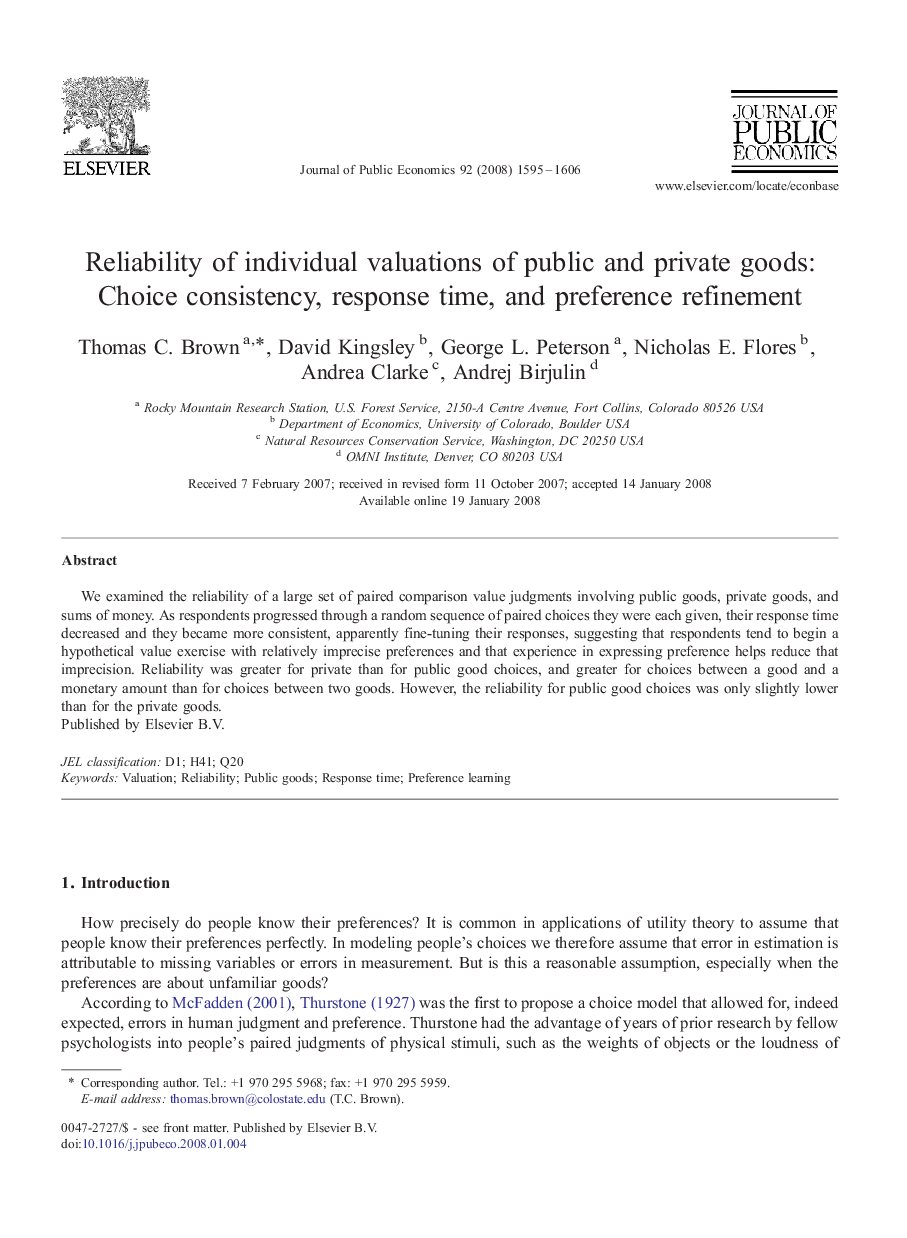| Article ID | Journal | Published Year | Pages | File Type |
|---|---|---|---|---|
| 968814 | Journal of Public Economics | 2008 | 12 Pages |
We examined the reliability of a large set of paired comparison value judgments involving public goods, private goods, and sums of money. As respondents progressed through a random sequence of paired choices they were each given, their response time decreased and they became more consistent, apparently fine-tuning their responses, suggesting that respondents tend to begin a hypothetical value exercise with relatively imprecise preferences and that experience in expressing preference helps reduce that imprecision. Reliability was greater for private than for public good choices, and greater for choices between a good and a monetary amount than for choices between two goods. However, the reliability for public good choices was only slightly lower than for the private goods.
